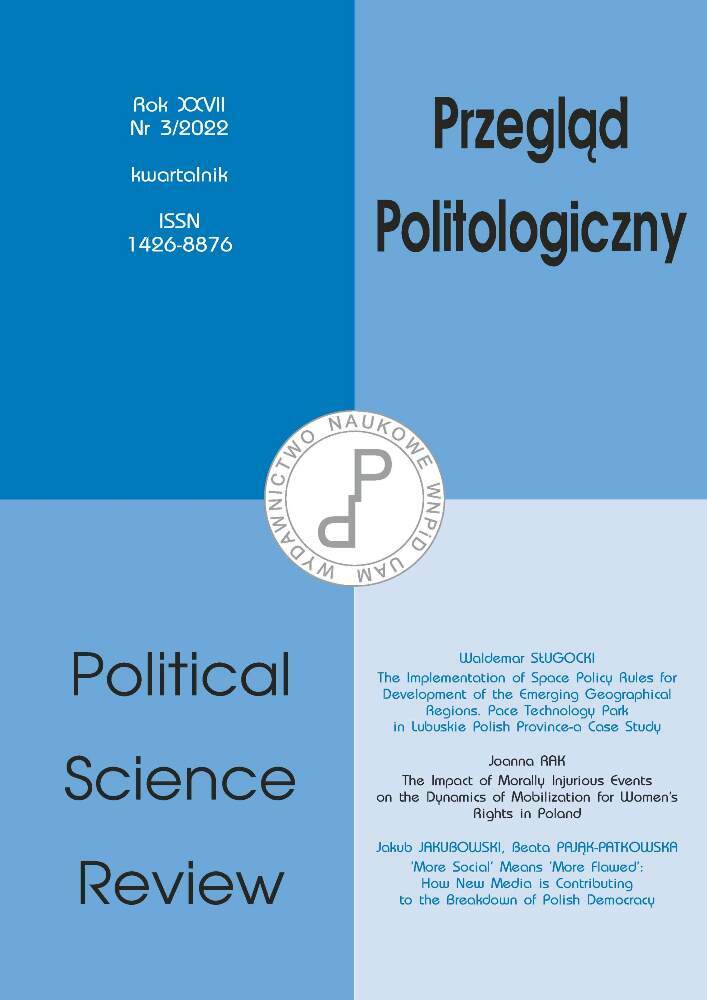Abstract
The process of the security system formation in the integrated European space has been continuing for more than seven decades, but its final objective has not been attained yet. The relevance of this topic is the need to study the process of destruction of the established world, the collapse of the system of international relations, lack of understanding and complete disregard by the aggressor of all humanitarian levers in a situation of war and armed confrontation. Every subsequent turn in development of international relations in 20th and 21st centuries and new emerging threats seem to bring countries closer to unity and addressing the security problem, but…
In 2014 Russia, ignoring the principles of the international law, basic treaties with Ukraine, commitments to respect the territorial integrity and inviolability of Ukraine, started a war. On 24 February 2022, a new escalation took place when Russia attacked Ukraine without declaring the state of war. What was the reason? The answer could be found in the Ukrainian history that is not a simple one. Russian rulers want to rebuild the Russian empire returning to the borders of the 19th century. This is a threat to Ukraine that is a sovereign European state founded on the bases of European values, peace and international cooperation.
Russia has been trying to eliminate Ukrainian statehood, language, and culture starting from the Kozak times of the 16th century. Thus, this process is at least 500-year old. In the 21st century, Russia attempted to occupy Ukraine by means of the anti-Ukrainian government, but the attempt failed. As a consequence, the Russian president decided to eliminate Ukraine by military means. When the aggression started in 2014, the EU deeply dependent on Russian energy sources, did not react fully to the Russian intervention. Ukraine could not defend its territorial integrity because of the lack of military capacities in the absence of the international military support. But in 2022, the situation is radically different: at the time of Russian invasion, Ukrainian people raise to the defense of their country, and the Ukrainian army thanks to the strong international military and political support continues to defend the existence of the Ukrainian state despite the dominance of the Russian military machine.
References
Chekalenko L. (2003), The Polish Version of the European Choice of Ukraine, “Europe. (Magazine of the Polish Institute of International Studies)”, Warsaw, RP, vol. 3, no. 1(6) (Eng).
Chekalenko L. (2016), Foreign policy of Ukraine, LAT&K, Kyiv, Ukraine, 294 p., 8 p. pic. (Eng).
Chekalenko L. D. (2021), Public History: the Challenges of XXI St., Kyiv, АrtEc, 272 p., pic. (Ukr).
Draft Paper Polish-Sweden proposal Eastern Partnership, http://www.euractiv.com/29/images) (Eng).
European Integration Glossary (1998), “Interdialekt+”, M., 358 pp. (Rus).
Göncz K. (2009), The speech of K. Göncz at the ceremony dedicated to 60th anniversary of NATO and 10th anniversary of Hungary’s membership in the alliance (Szeged, Hungary, January 30, 2009), (Eng).
Information management of the Apparatus Verkhovna Rada of Ukraine, https://rada.gov.ua/news/Novyny/168096.html) (Ukr).
Joint statement of the Ukraine-NATO Commission during the Warsaw Summit (2016), http://mfa.gov.ua/ua/press-center/comments/5992-spilyna-zajava-komisijiukrajina-nato-pid-chas-varshavsykogo-samitu (Ukr).
MFA of Ukraine, http://www.mfa.gov.ua/mfa/ua/announcement/detail/526.htm (Eng).
Multi-national Tisza battalion conducts simulated exercises in Ukraine, RIA “Novosti”, May 14, 2008 (Eng).
Tarasiuk, Boris for “Glavred”, 31.12.08, 13:03 (Ukr).
The European Union puts down new roots at the post-Soviet space (2008), The EU Summit approved all planned decisions, “Kommersant”, 13.12, no. 228(4045) (Rus).
License
Copyright (c) 2022 Liudmyla D. Chekalenko

This work is licensed under a Creative Commons Attribution 4.0 International License.

